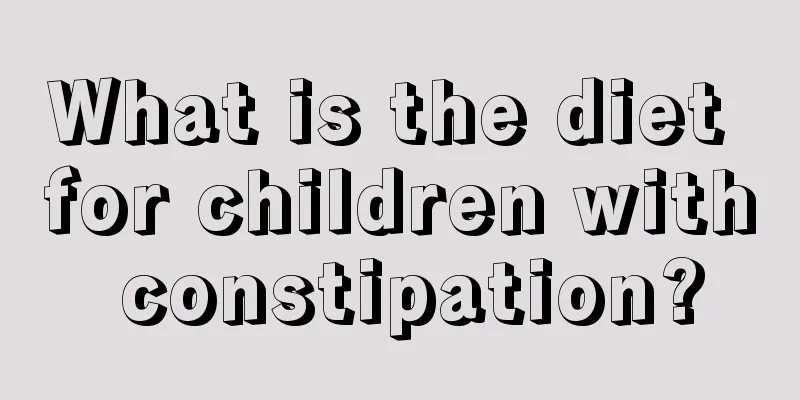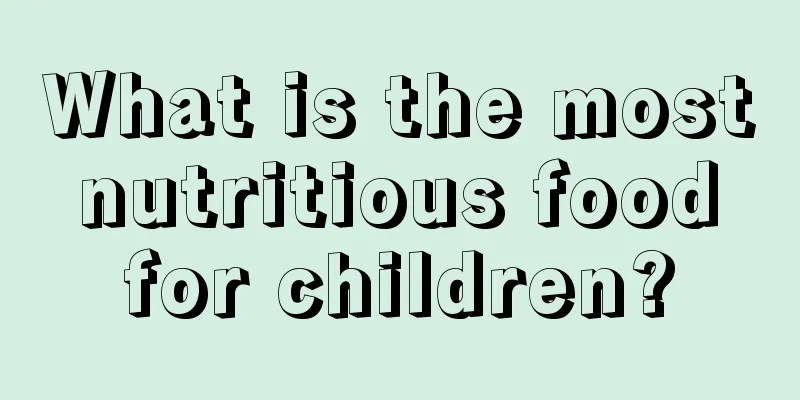The baby's face turns red when he holds it in

|
In fact, when babies are just born, they are curious about the world. In the eyes of adults, babies often do many things that adults would not do, so these things become strange behaviors in the eyes of adults, and they think that their babies have some disease. Some parents have found that their babies often like to hold their breath, and their faces turn red as they hold their breath. So what is the reason why babies like to hold their breath? Although a newborn baby is very small, it is amazing that it seems to know many things, such as feeding, humming, crying, and instinctively looking for its mother. All of this makes new parents very happy. Of course, it is also worrying sometimes. The most common situation is that the baby struggles so hard that the milk is spit out. Worried parents are always afraid that the baby is uncomfortable somewhere. Let's talk about what to do if the baby struggles, holds back the milk, and spits up the milk. Babies need to find a comfortable position through movement while contacting and feeling the outside world. If you move soon after eating, because your stomach capacity is small and your esophagus is short, the local pressure will increase when you exert force, which will compress the stomach and cause Symptoms of milk spitting up. This is quite common and there is no need to worry too much. At this time, you need to be careful to avoid choking or coughing due to swallowing, keep the body upright, and clean the area around the mouth. It is recommended that you relax, hold your baby upright for ten minutes after feeding, pat his back gently, and then lay him flat to avoid milk discharge. Try to keep him comfortable and clean, and avoid using too much force. How to prevent baby from spitting up? 1. Use appropriate feeding posture Some mothers like to breastfeed while lying down. This face-to-face side-lying breastfeeding posture increases the possibility of the baby spitting up milk. If the mother holds her baby to breastfeed, the baby will be less likely to spit up. Because the baby's body is tilted in the arms, the lower opening of the stomach has a certain tilt accordingly, and the sucked milk is heavy. The force can partially flow into the small intestine. Leave the stomach partially empty. Therefore, when the baby is fed with the same amount of milk, the chance of spitting up is lower when the baby is held up for feeding than when the baby is lying down for feeding. 2. Don’t rush to put the baby down after feeding After the baby finishes feeding, the mother should not put him back to bed immediately, but should hold him upright and let the baby lie on her shoulder. The mother should pat the baby's back with her hands to expel the air swallowed during breathing, that is, to make the baby burp. The gas staying in the stomach and occupying a certain amount of space is an important factor causing the baby to spit up milk. After the baby burps, the gas in the stomach is emptied and it is not easy for the baby to spit up milk. Newborns may whimper, twist around, or even have red faces, as if they can't defecate. This stretching movement is normal and occurs in many babies, but it will gradually decrease after three months. Spitting up is a common phenomenon in infants. The reason why newborns are prone to spitting up is that their stomach and throat are not yet fully developed. Generally speaking, mild spitting up and regurgitation are not a big problem and do not require any special treatment. This condition will improve significantly as your baby grows older. If your baby has severe projectile vomiting, and sometimes milk flows out of the nostrils, it is recommended to take your baby to the hospital for examination. |
<<: White spots on baby's head
>>: The best time for babies to grow taller
Recommend
1 year old baby diarrhea
Diarrhea is a very common symptom. For adults, se...
Is it good for children to have early teething?
The early or late eruption of children's teet...
What is bacterial encephalitis in children?
Bacterial encephalitis in children is also a rela...
What to do if your child is stingy and selfish
As we grow up, different life experiences and fam...
What are the consequences of a baby's enlarged gallbladder at birth?
In order to understand the baby's development...
What happens if I take a shower after getting a vaccination?
In order to reduce the troubles that babies encou...
Symptoms of infants not adapting to milk powder
After frequent incidents with domestic milk powde...
What is systemic sclerosis in children?
Children are treasures in every parent’s heart. T...
Why does a 4-year-old baby grind his teeth when sleeping at night?
It is a common phenomenon that a 4-year-old baby ...
What to do if your child has toothache
When children have toothache, it is usually cause...
How to repair scars on baby's face
The most unacceptable thing is spots on the face....
What causes nose bleeding in children?
Children are prone to nosebleeds, so parents shou...
Two and a half year old baby has blood in stool
When babies are young, their bodies are weak due ...
How to treat children's recurrent cough
Children’s health is an issue that parents are mo...
What causes shortness of breath in children?
There are many possible reasons why a child may b...









